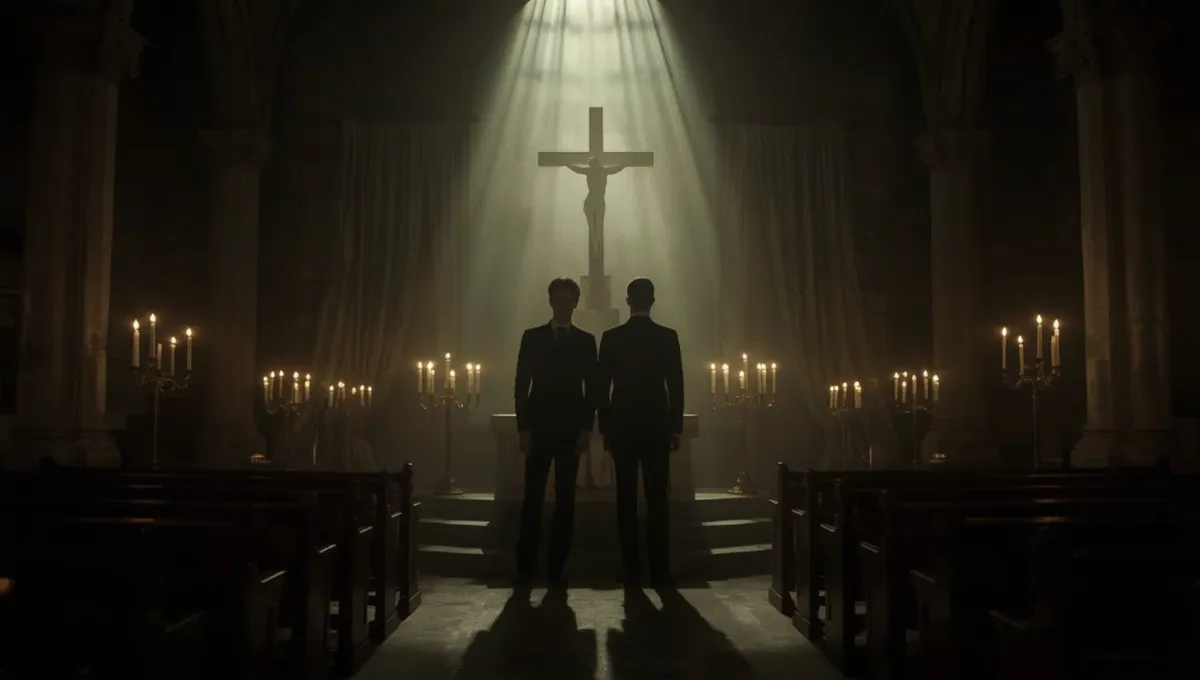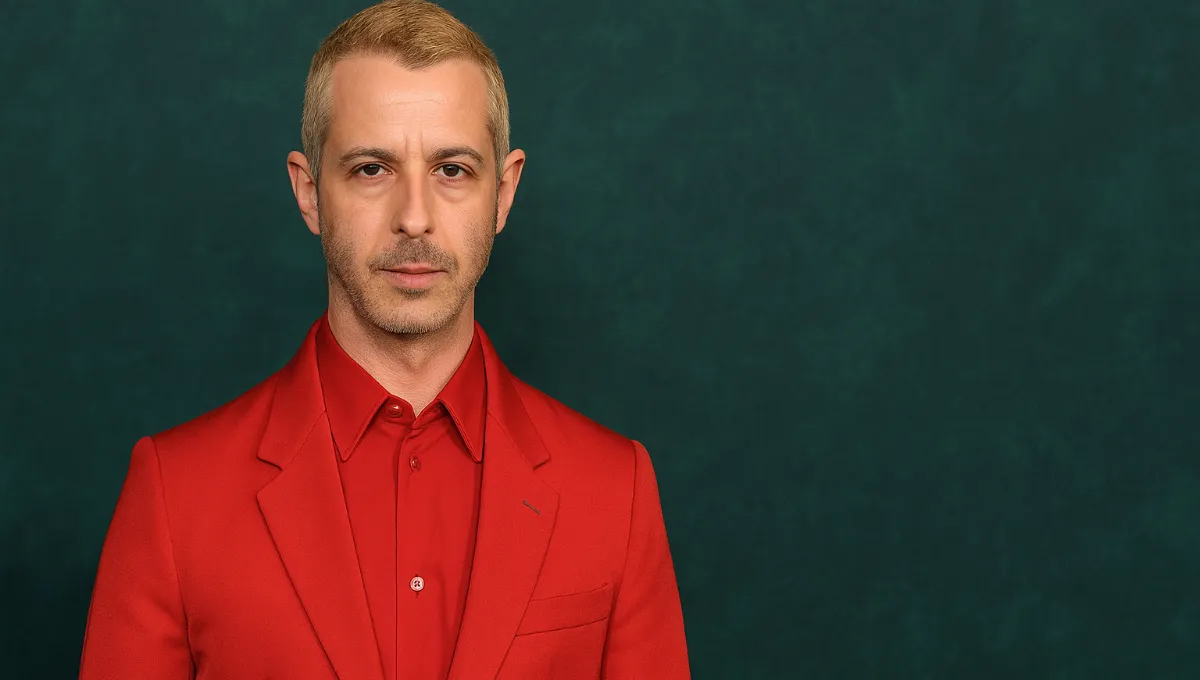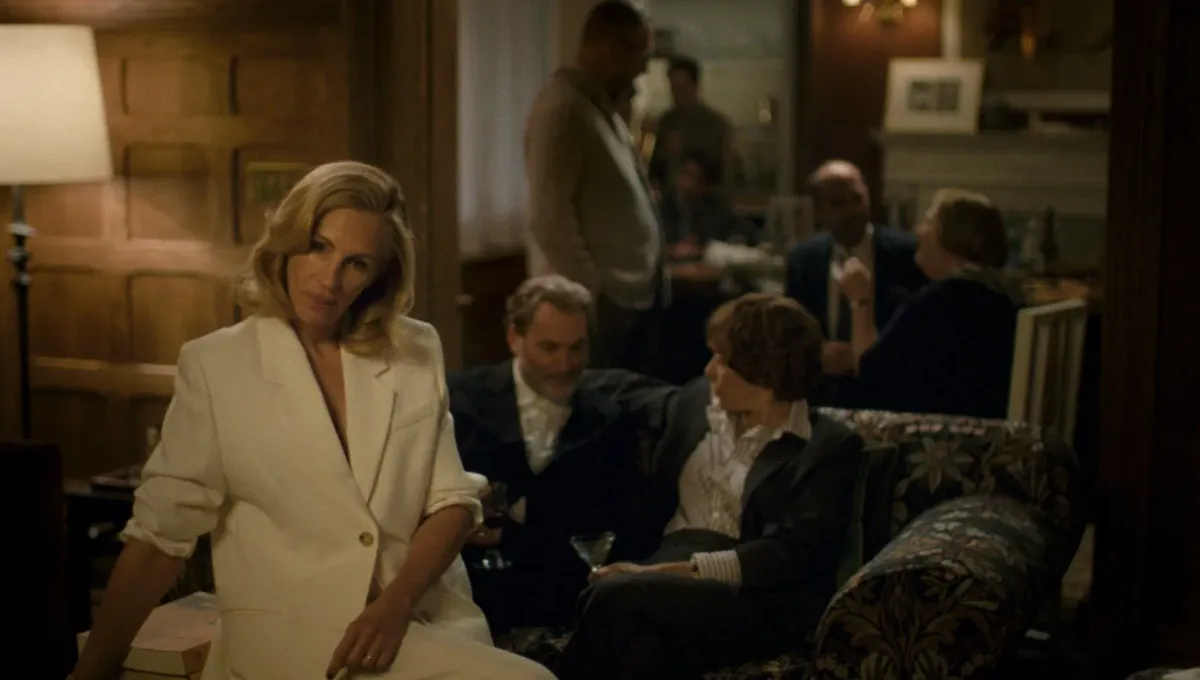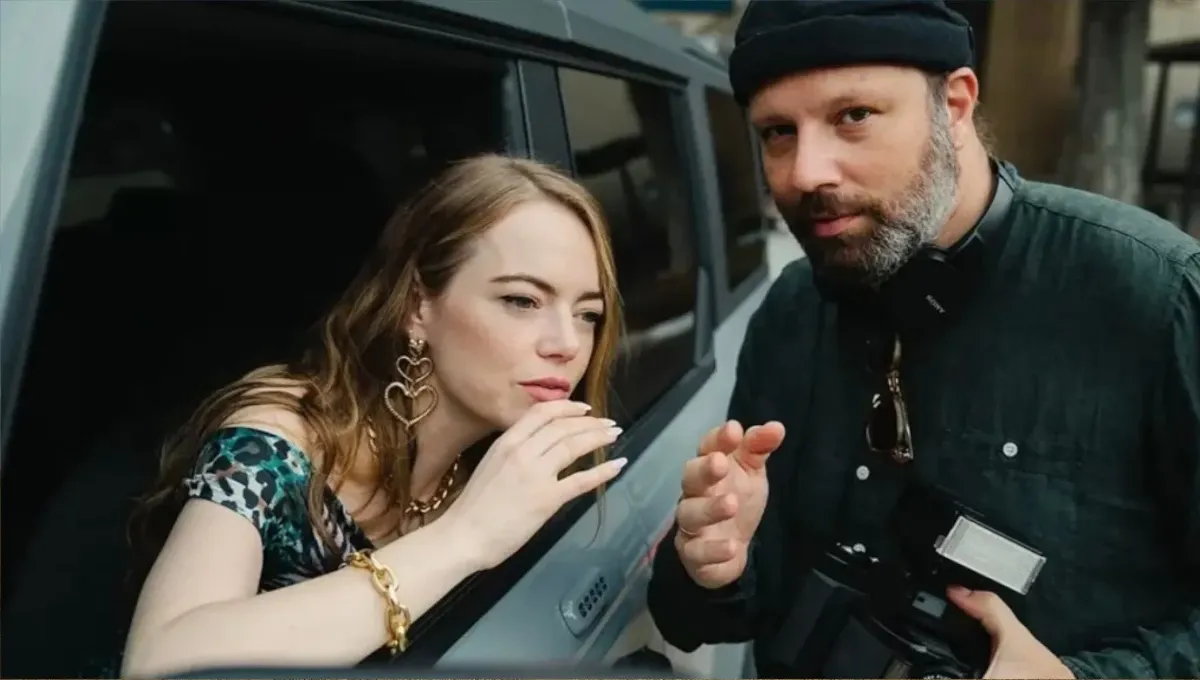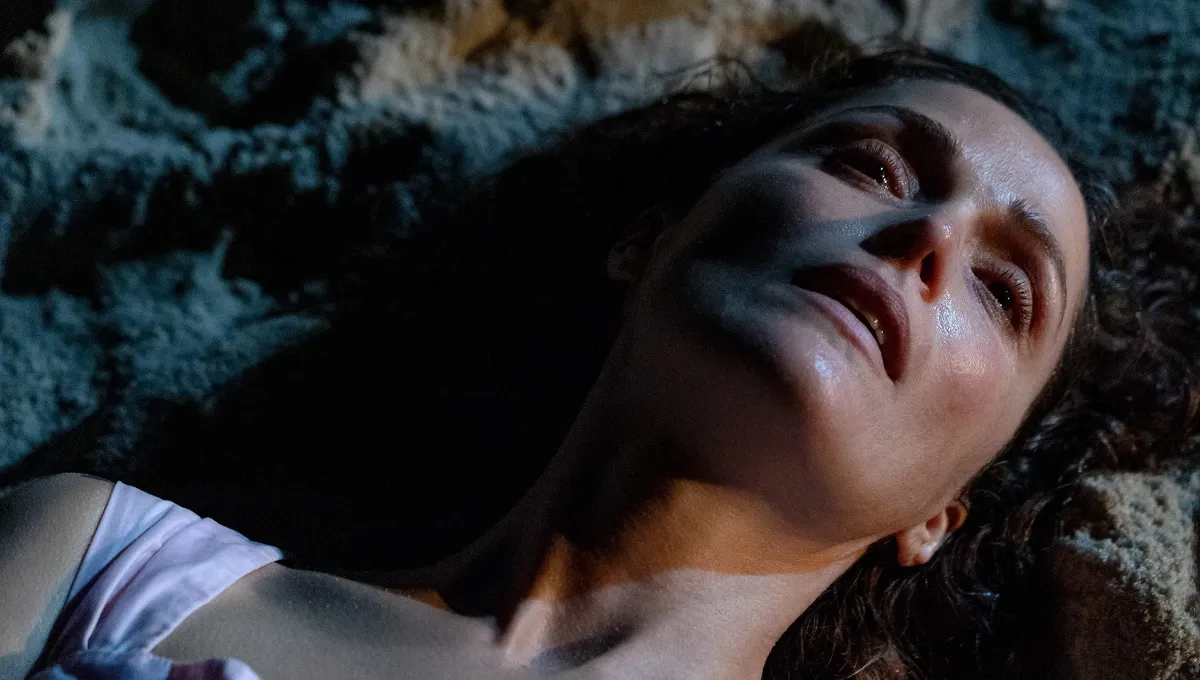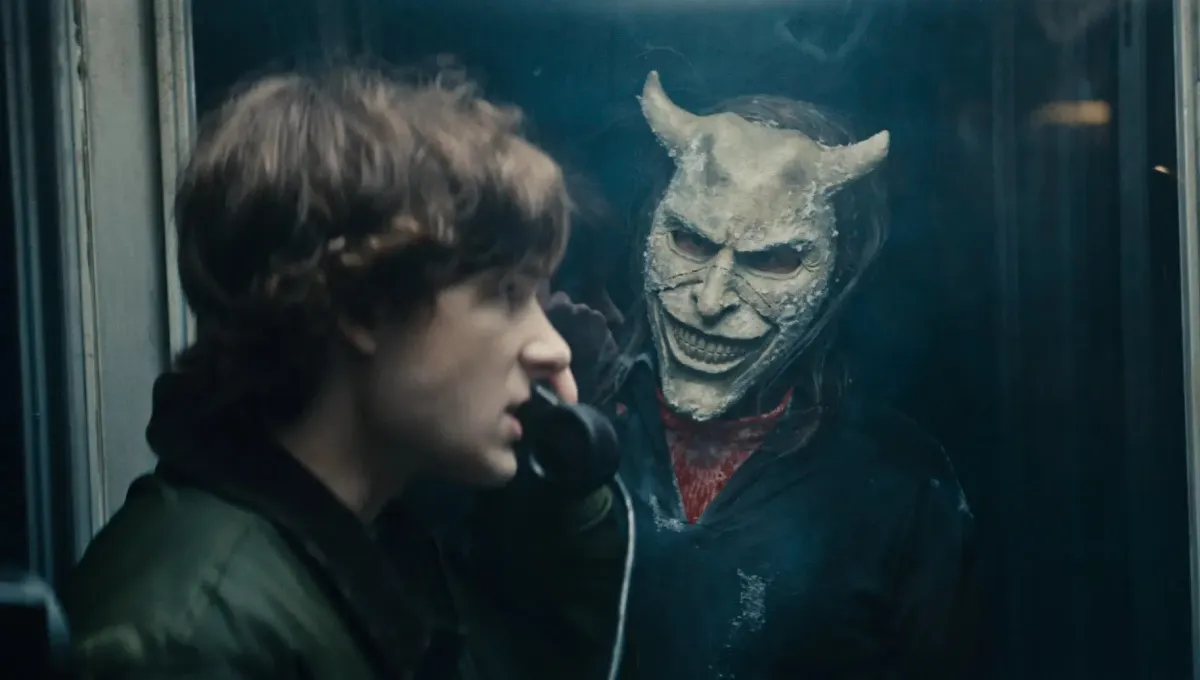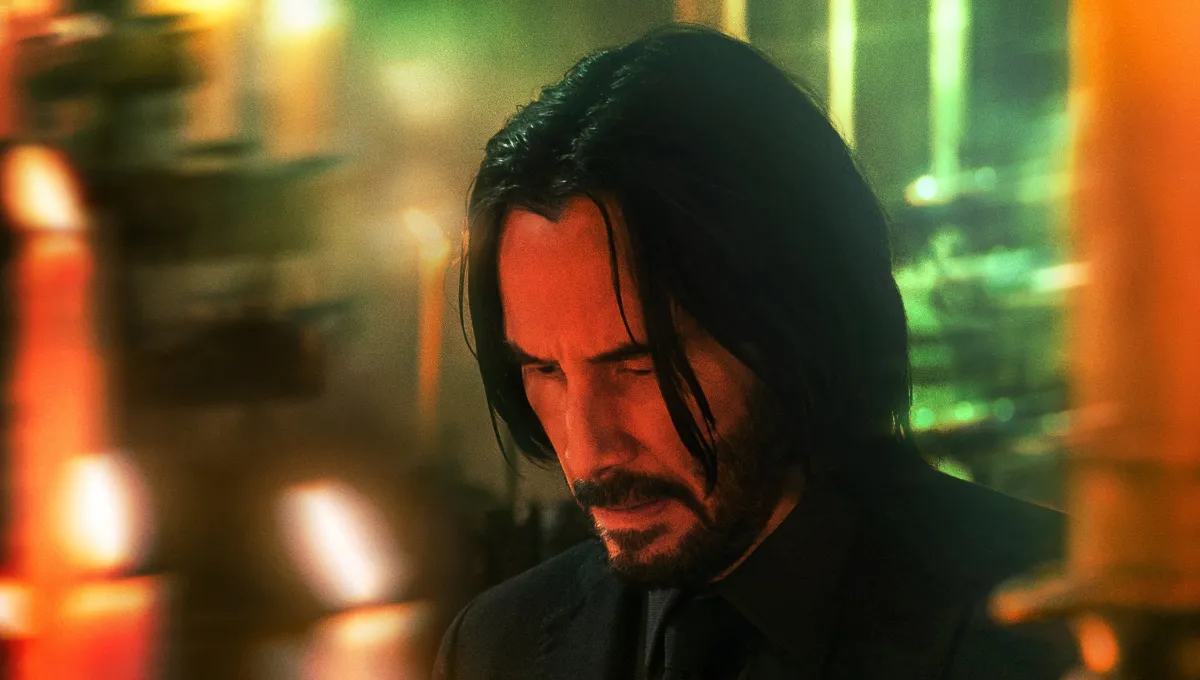In a world drowning in noise, few films dare to speak softly about faith, money, and the strange pursuit of happiness. Good Fortune (2025) does exactly that. Written, directed, and co-starring Aziz Ansari, the film blends humor and heart in a story that’s both whimsical and painfully relevant. With Keanu Reeves, Seth Rogen, Keke Palmer, and Sandra Oh leading an unforgettable ensemble, it’s a modern fable about wealth, empathy, and the everyday miracles that keep us human.
The story begins with Arj (Aziz Ansari), a gig worker juggling delivery apps, odd jobs, and overdue dreams. He’s clever, exhausted, and quietly losing hope while trying to survive in a city that measures worth by productivity. On the other side of town, Jeff (Seth Rogen) lives in a mansion full of empty luxury. He’s rich, connected, and emotionally detached from the world around him. Between them hovers Gabriel (Keanu Reeves), a well-meaning but completely inept angel tasked with guiding souls toward purpose. His latest assignment seems simple: help Arj rediscover faith in himself. But Gabriel’s impatience leads to a cosmic mistake — a miraculous “life swap” that sends the poor man into the rich man’s body, the capitalist into the worker’s shoes, and the angel spiraling into chaos.
From the first scene, Good Fortune plays like a dream painted in warm light. Reeves appears not as a grand celestial being but as a sweet, slightly confused figure in a wrinkled white suit, fumbling through divine bureaucracy. His wings don’t shimmer; they shed feathers at inconvenient moments. His halo flickers like a dying bulb. It’s hilarious and strangely touching — a portrait of imperfection that feels perfectly human. Reeves gives Gabriel a weary grace, his calm voice tinged with wonder, as if he still believes in people even when they fail him again and again.
When Gabriel accidentally triggers the life swap, he’s punished by losing his powers and forced to live among mortals. Suddenly, the angel who once judged humanity from above must deal with bills, traffic, and the crushing loneliness of a world built on competition. Watching him navigate everyday life — trying to order coffee without money, learning what a “credit score” is — is one of the film’s purest pleasures. Reeves moves through these moments with comic precision and genuine curiosity, turning small gestures into revelations.
Meanwhile, Arj wakes up in Jeff’s penthouse, surrounded by luxury he never imagined. At first, it feels like paradise: silk sheets, self-driving cars, personal chefs. But the fantasy crumbles fast. The more he tastes success, the more he sees its emptiness. Jeff’s wealth isolates him from meaning; every convenience becomes a cage. Through Arj’s eyes, the film reveals the emotional bankruptcy behind privilege — a subtle critique wrapped in laughter.
On the other side of the cosmic coin, Jeff finds himself living Arj’s life: hustling for rides, delivering groceries, and enduring algorithmic rejection from gig-work apps. His frustration turns to humility, then to empathy. It’s in these quiet reversals that Good Fortune finds its magic. The story isn’t about punishing the rich or glorifying the poor; it’s about recognizing the shared exhaustion of human striving. Everyone, rich or broke, is searching for peace in a system that rarely allows it.
Keke Palmer gives the film its moral backbone as Elena, Arj’s co-worker and friend. She’s fierce, funny, and politically awake, fighting for fair pay and dignity in a workplace that treats people like replaceable parts. Her scenes ground the fantasy in real-world stakes. Sandra Oh plays Martha, Gabriel’s celestial supervisor — a no-nonsense bureaucrat of Heaven who treats miracles like paperwork. Her dry humor brings a delightful absurdity to the divine realm, showing that even angels have deadlines. Stephen McKinley Henderson lends quiet gravitas as the elder angel Azrael, offering Gabriel sage advice that sounds like something carved into stone: “Grace isn’t about being right. It’s about showing up when it’s hardest.”
Aziz Ansari directs with surprising restraint. Known for sharp stand-up and cultural commentary, here he opts for sincerity over irony. The film moves with rhythm — part urban satire, part emotional parable. His camera lingers on small human gestures: a late-night bus ride, a spilled coffee, a tired smile. He captures the poetry of everyday struggle without judgment. The cinematography by Adam Newport-Berra paints Los Angeles as both holy and hostile — a city where neon signs glow like halos and delivery bikes glide through midnight streets like fallen stars.
The music by Carter Burwell ties it all together. Gentle piano themes flow between humor and heartbreak, making even the absurd feel sacred. In one unforgettable scene, Gabriel — now stripped of power — sings quietly to himself while fixing a broken toaster, his voice cracked but peaceful. It’s a moment so small and sincere that it becomes transcendent.
Throughout Good Fortune, the comedy never overshadows the message. The jokes are sharp but never cruel, the satire playful but never cynical. Ansari’s writing shows deep compassion for flawed people doing their best in an indifferent world. The humor grows naturally out of truth: the angel who can’t work a smartphone, the billionaire who doesn’t know how to cook, the gig worker who finds community in exhaustion. Beneath every laugh lies a question — what does it really mean to live well?
The film’s final act brings the three stories together in a quiet crescendo. After a series of misadventures, Gabriel finally accepts that his role isn’t to fix people but to walk beside them. Arj and Jeff, forever changed by their switch, meet again not as opposites but as equals. There’s no grand speech, no glowing light from the sky — just a simple handshake on a rainy street, followed by a smile. It’s an ending that feels earned because it’s humble. The miracle isn’t that lives were swapped; it’s that they were understood.
Reeves’s performance anchors that truth. His portrayal of Gabriel might be one of the most tender of his career — a balance of humor, vulnerability, and quiet grace. Watching him rediscover humanity from the outside reminds us why he remains such a beloved figure: he brings dignity to sincerity. Even when the film dips into chaos, Reeves grounds it with warmth that lingers long after the credits.
Good Fortune thrives on contrasts — divine and mundane, wealth and poverty, comedy and melancholy. Yet its tone is remarkably cohesive. Every scene feels alive with curiosity about how people cope, forgive, and start over. Ansari doesn’t preach; he observes. His lens finds beauty in imperfection and humor in despair. The result is a film that laughs with you, not at you.
The themes resonate far beyond the screen. The story’s look at the gig economy mirrors millions of lives balancing dreams and survival. Its portrait of privilege feels uncomfortably familiar. And its depiction of faith — not as religion, but as resilience — gives the film a quiet universality. Beneath the fantasy, Good Fortune becomes a mirror reflecting our own longing to be seen, to be valued, to be forgiven for not having it all figured out.
By the time the credits roll, Gabriel stands on a Los Angeles rooftop, watching dawn break over the city. The light touches him like a reminder — not of Heaven, but of humanity. He smiles, half-amazed, half-amused, and whispers, “Maybe this is the point.” The screen fades to white.
It’s rare to find a movie that blends humor, heart, and humility so effortlessly. Good Fortune does it with grace. Aziz Ansari’s debut as a feature-film director feels deeply personal yet widely relatable, capturing the contradictions of our time: wealth without peace, faith without certainty, progress without connection. Through laughter and small miracles, it reminds us that redemption often hides in the ordinary.
Good Fortune is not about angels saving people — it’s about people saving each other, one awkward, beautiful moment at a time.

Grace Whitmore is a beauty and lifestyle editor at Nestification, exploring the intersection of modern femininity, quiet luxury, and emotional design. Her work focuses on how aesthetics, mindfulness, and self-expression shape today’s idea of calm confidence — where beauty becomes a state of mind.
Based in New York · [email protected]

